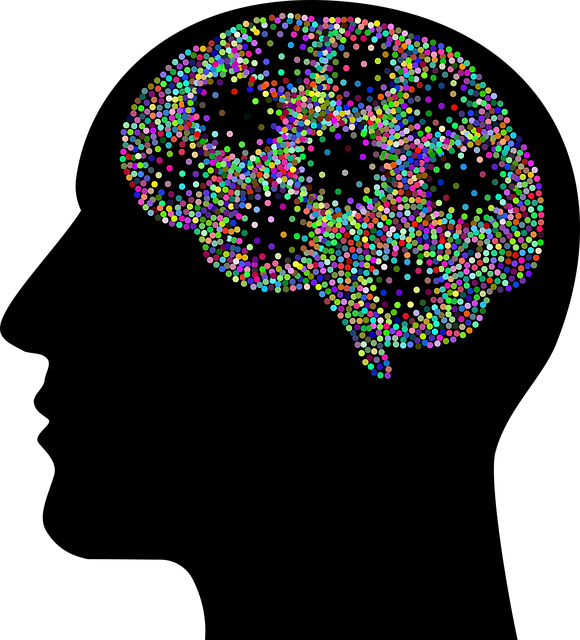Chronic stress, a natural response to daily demands, can lead to serious physical and mental health issues, such as heart disease, digestive problems, anxiety, and depression. Wheat Ridge Functional Neurological Disorder Therapy (WNFDT) offers a holistic approach to managing stress by addressing its root causes, promoting resilience, and fostering better communication through social skills training. Lifestyle changes like healthy eating, exercise, and mindfulness practices, combined with WNFDT's personalized treatment plans and culturally competent care, can significantly improve emotional well-being, reduce stigma, and empower individuals to take control of their mental health in today's fast-paced world.
Stress reduction is essential for maintaining optimal health and well-being. In today’s fast-paced world, understanding how stress impacts our bodies is crucial. This article explores various effective methods to combat stress, from holistic therapies like Wheat Ridge Functional Neurological Disorder Therapy, offering a calming approach, to lifestyle changes and mindfulness practices. Discover alternative treatments that promise a softer, more resilient you.
- Understanding Stress and Its Impact on the Body
- Wheat Ridge Functional Neurological Disorder Therapy: A Holistic Approach
- Lifestyle Changes for Stress Reduction
- Mindfulness and Meditation Techniques to Calm the Mind
- Exploring Alternative Therapies for a Softer, More Resilient You
Understanding Stress and Its Impact on the Body

Stress is a natural response to various demands and challenges we face daily, but when it becomes chronic, it can significantly impact our overall health and well-being. It’s essential to understand that stress doesn’t just affect our minds; it triggers physical reactions in the body as well. When stressed, our bodies release hormones like cortisol and adrenaline, preparing us for what’s often perceived as a ‘fight or flight’ response. Over time, this constant activation can lead to various health issues, including heart disease, digestive problems, and even weakened immune systems. This is particularly relevant for individuals dealing with conditions like Wheat Ridge Functional Neurological Disorder Therapy, where stress management plays a crucial role in symptom mitigation.
The impact of chronic stress can be far-reaching, affecting not just our physical health but also mental clarity and emotional stability. It’s not uncommon for stressed individuals to experience anxiety, depression, or even changes in sleep patterns and appetite. Moreover, self-esteem improvement often goes hand in hand with effective stress management, as feeling in control of one’s stress levels can boost overall confidence and resilience. Mental Health Education Programs Design focused on stress reduction techniques are valuable tools that teach people how to recognize and manage their stress triggers, thereby fostering better mental health outcomes.
Wheat Ridge Functional Neurological Disorder Therapy: A Holistic Approach

Wheat Ridge Functional Neurological Disorder Therapy offers a holistic approach to stress reduction, addressing both physical and mental aspects of well-being. This method focuses on identifying and treating underlying causes rather than merely managing symptoms, making it particularly effective for those seeking long-lasting solutions to chronic stress and related conditions like anxiety or depression. By integrating various therapeutic techniques tailored to each individual’s unique needs, this approach fosters Mental Health Awareness and aims to reduce the stigma surrounding mental illness.
The program prioritizes a collaborative relationship between clients and healthcare providers, ensuring culturally competent care through specialized training. This sensitivity towards cultural differences is crucial in building trust and facilitating open communication. Through personalized treatment plans, Wheat Ridge Functional Neurological Disorder Therapy empowers individuals to take control of their mental health journey, ultimately enhancing their ability to navigate life’s challenges with resilience and a renewed sense of well-being.
Lifestyle Changes for Stress Reduction

Many individuals seeking stress reduction often turn to lifestyle changes as a primary approach. This includes adopting healthier eating habits, such as incorporating more fruits, vegetables, and whole grains into one’s diet, which can significantly impact overall well-being. Regular exercise is another powerful tool; even moderate physical activity can reduce stress hormones and improve mood. Additionally, prioritizing quality sleep through consistent bedtimes and a relaxing bedtime routine is essential for managing stress levels.
Wheat Ridge Functional Neurological Disorder Therapy offers innovative solutions for those dealing with chronic stress. By focusing on holistic healing, this therapy not only treats symptoms but also empowers individuals to develop resilience and burnout prevention strategies. Incorporating risk management planning for mental health professionals can further enhance these practices, ensuring a balanced lifestyle that includes self-care, social connections, and engaging hobbies.
Mindfulness and Meditation Techniques to Calm the Mind

Mindfulness and meditation have emerged as powerful tools for calming the mind and reducing stress. Techniques such as deep breathing exercises and focused attention on the present moment can help individuals cultivate a sense of inner peace and emotional regulation, which is especially beneficial for those dealing with conditions like Wheat Ridge Functional Neurological Disorder Therapy. By training the mind to stay grounded in the here and now, these practices can significantly lower anxiety levels and enhance overall mental well-being.
Incorporating mindfulness into daily routines allows individuals to better manage their reactions to stressful situations. This form of therapy is often coupled with meditation to promote relaxation and reduce symptoms associated with mental illness. Moreover, social skills training and stigma reduction efforts within the context of emotional regulation can foster supportive environments, encouraging open conversations about mental health challenges and cultivating empathy among community members.
Exploring Alternative Therapies for a Softer, More Resilient You

In today’s fast-paced world, finding effective stress reduction methods is more important than ever for maintaining emotional well-being. Exploring alternative therapies offers a unique path to a softer and more resilient you. Wheat Ridge Functional Neurological Disorder Therapy (WNFDT) stands out as a game-changer in this domain. This innovative approach focuses on addressing the root causes of stress and dysfunction, promoting self-care practices that foster overall health.
By delving into WNFDT, individuals can experience significant improvements in their ability to manage stress. The therapy encourages the development of essential social skills training, enabling better communication and connection with others, a crucial aspect of emotional well-being promotion techniques. Unlike traditional methods that merely mask symptoms, WNFDT empowers individuals to navigate life’s challenges with grace and resilience.
Stress is an inevitable part of life, but navigating it effectively can significantly enhance our well-being. By combining traditional understanding with innovative approaches like Wheat Ridge Functional Neurological Disorder Therapy, we can achieve a holistic stress reduction. Incorporating lifestyle changes, mindfulness practices, and alternative therapies allows for a multi-faceted attack on stress, fostering resilience and promoting a calmer, more balanced state of being. Remember that finding the right combination of techniques is key; what works best varies from person to person. Through exploration and perseverance, one can discover a path to managing stress effectively, leading to an improved quality of life.














